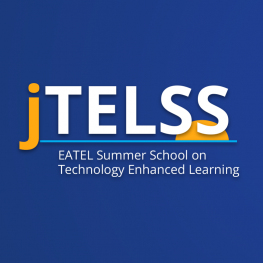Speakers
Sebastian Wollny
DIPF, GermanyJan Schneider
DIPF, GermanyStart
06/06/2023 - 10:30
End
06/06/2023 - 12:00
AI in the loop – Designing Interfaces for Teachers
Tuesday 06/06 10:30-12:00h
Workshop Space A
Abstract
Artificial intelligence (AI) is increasingly being used in education to support teachers’ work, such as predicting or assessing students’ performance, providing feedback, or personalising learning paths. However, AI models are often complex, opaque, and biased, which can pose challenges and risks for teachers who need to understand and use them effectively and ethically. How can we help teachers make sense of AI outputs and make informed decisions based on them? One possible way is to provide them with visualisations that can explain, interpret, or contextualise AI outputs in a meaningful way.This workshop aims to explore designs of visualisations of AI outputs for teachers. It brings together researchers from different disciplines (e.g., education, computer science, design). The workshop consists of three parts: 1) an overview of the field; 2) a hands-on session where participants will design their own solutions; 3) a reflection session where participants will share their experiences and give feedback. By taking part in this workshop, participants will enhance their own skills and creativity in designing visualisations and will contribute to advancing this important research field.
Needs Analysis
This workshop should be run because it will provide PhD candidates in TEL with an opportunity to learn about AI and how it can be used to enhance learning and teaching. AI is a relevant topic for TEL/EdTech because it can offer personalized, adaptive and intelligent support for learners and educators, as well as generate new insights into learning processes and outcomes. PhD candidates will practice skills in creating visualizations of AI outputs that can be incorporated in the classroom. These visualizations can help make AI more transparent, understandable and engaging for learners and educators, as well as foster creativity and collaboration. By participating in this workshop, PhD candidates will gain both theoretical knowledge and practical experience in applying AI to TEL/EdTech contexts.
Learning Objectives
In this workshop, the participants will learn about the basics of AI and how it can be applied to TEL/EdTech scenarios. They will also learn about different types of visualizations and how they can communicate AI outputs effectively and creatively. The participants will work in groups to design and prototype their own visualizations using various tools and data sources. The outcomes of the workshop will include a set of original and innovative visualizations that can be used to enhance learning and teaching with AI, as well as a reflection on the challenges and opportunities of using AI in TEL/EdTech settings. The participants will also receive feedback from their peers and experts on their work.
Pre-activities
This workshop is suitable for participants who are interested in how to analyze text data with AI. Participants should ideally be familiar with the TEL/EdTech context and the needs of teachers. Knowledge in word embeddings is not mandatory but helpful.
Session Description
AI is an important research field in TEL nowadays, but how can we visualize its outputs effectively for different contexts and users? This workshop will help participants design and evaluate visualizations of AI outputs using various tools and methods. After an input on the topic, participants will work in groups to create and test their own visualizations. They will present and get feedback on their solutions, and vote for the best one. The workshop will encourage creativity, collaboration, and critical thinking in this emerging field.


